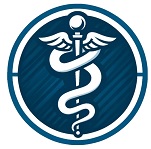Becoming a doctor may be the ultimate career goal for some students, but that may not be appropriate for everyone. Other health-related degrees provide fulfilling careers without wearing white coats.
Naturopathy focuses on natural methods for healing such as herbs, acupuncture and exercise to promote wellness. Audiology investigates hearing loss to provide further treatments.
Neurology
Students considering medical school often picture allopathic (MD) or osteopathic medicine (DO) programs as the only options available, yet there are other, equally rewarding avenues available to them.
As an example, you could pursue a degree in nursing and work directly with patients. There are various undergraduate, master’s, and doctoral nursing programs that could help you realize your healthcare career aspirations goals.
Nursing programs teach you to care for patients by understanding their needs. Furthermore, they equip you with skills and resources needed to work across various healthcare environments; plus you may choose a specialty area of nursing or even take on administrative responsibilities later.
Neurologists specialize in disorders affecting the brain, spinal cord and nervous system as a whole. These disorders may have their origin in congenital conditions or injury/disease – such as strokes or brain tumors – although others can arise suddenly without warning, like when they first show signs. Along with physical examination of patients, neurologists diagnose diseases through imaging studies such as computed axial tomography scans, magnetic resonance imaging or electroencephalography.
If you are contemplating taking an alternative university course to medicine, it is important to carefully consider all your options. Consider your timeframe for education as well as long-term career goals when making this decision. Additionally, cost should also be taken into consideration as medical schools can be costly – if unable to study full time full time could make sense considering alternatives instead of going for full medical studies.
Pathology
Pathology offers an excellent alternative to medical school for those interested in healthcare careers. Pathologists specialize in diagnosing, treating, and preventing infectious diseases using laboratory techniques such as culturing, staining and testing for antibiotic resistance in blood, urine, sputum or tissue specimens.
Pathology is a rigorous field that draws heavily upon concepts found within medicine. As such, it forms the basis of clinical practice as well as providing research opportunities within such basic fields as anatomy, development and cancer biology, cell physiology, human genetics, immunology, virology and neurobiology. Furthermore, pathology provides invaluable insights into disease progression as well as monitoring individual patient’s responses to therapy interventions.
If you have been denied admission to medical school, it is important to remember that other options exist. Take a year out from your degree program to explore another subject; work on improving your application; or find alternative routes into healthcare through nurse training programs, Physician Assistant programs or similar qualifications.
Ungaining entry to medical school can be a highly competitive process; do not become discouraged if your application does not go through right away. Reasons for your ineptitude will likely depend on your situation, so take some time to understand why and determine how you might improve it; perhaps by taking another exam or strengthening your personal statement. Furthermore, explore paid, volunteer, or work shadowing opportunities within related healthcare environments. Graduate entry courses often have lower entry requirements tailored to your circumstances, making them an attractive option if you already possess a degree in another subject area. Furthermore, these four-year programs boast high job security comparable to medical degrees.
